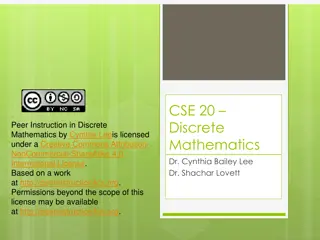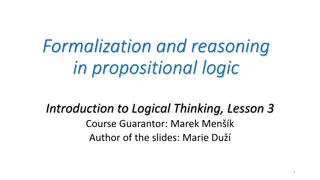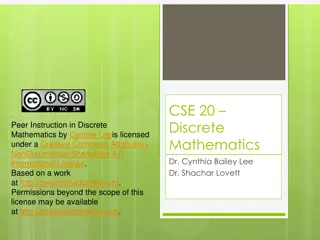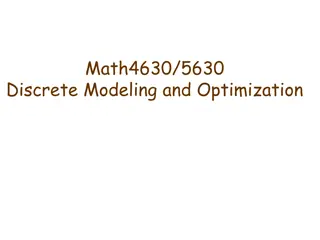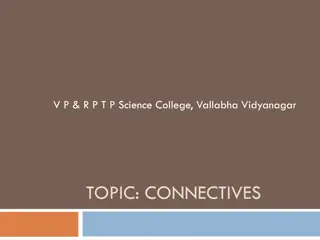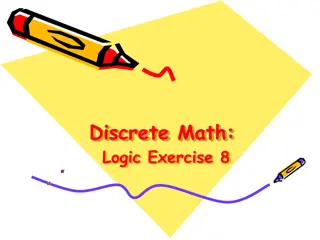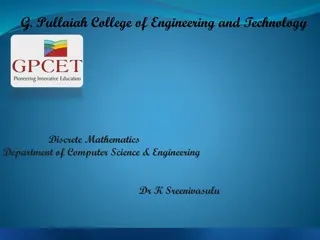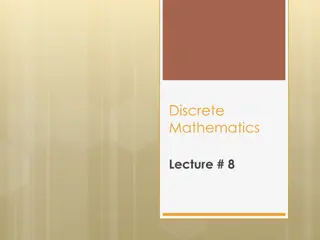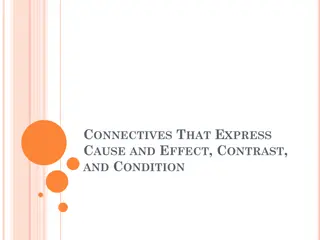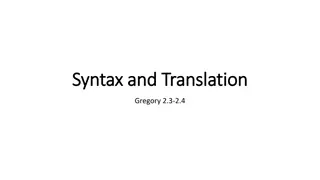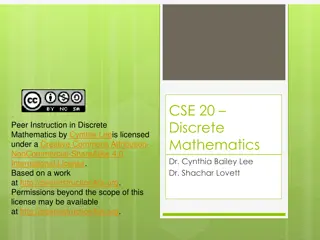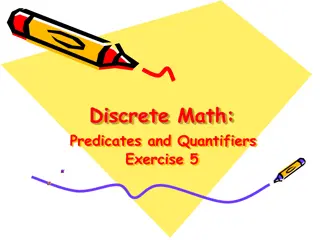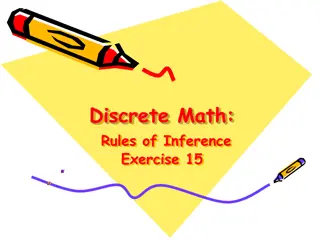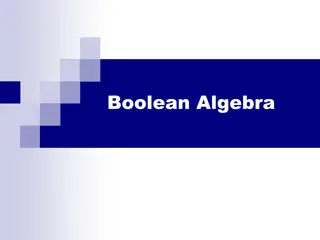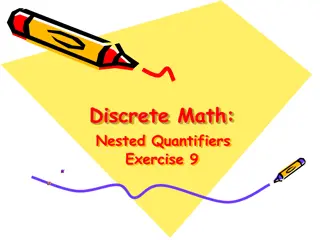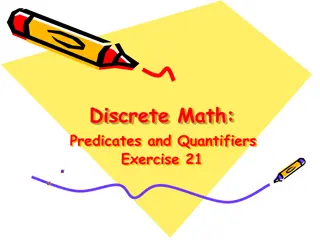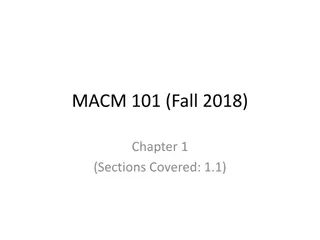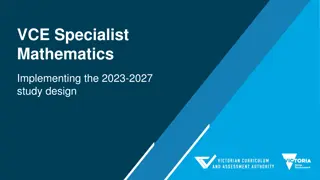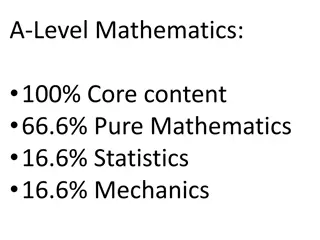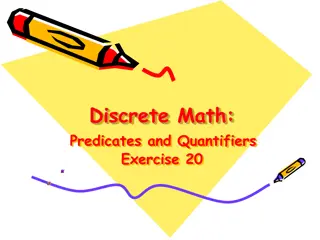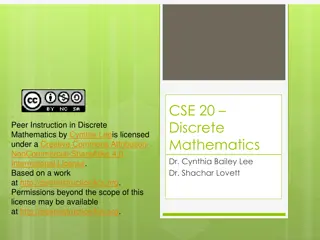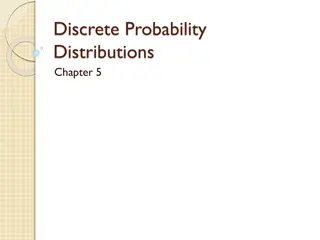Understanding Logical Connectives "or" in Discrete Mathematics
Explore the concepts of inclusive "or" and exclusive "or" in logical statements through various examples in discrete mathematics. Understand the implications of each interpretation in sentences related to prerequisite courses, incentives, set selection, and school closure due to extreme weather conditions.
Download Presentation

Please find below an Image/Link to download the presentation.
The content on the website is provided AS IS for your information and personal use only. It may not be sold, licensed, or shared on other websites without obtaining consent from the author. Download presentation by click this link. If you encounter any issues during the download, it is possible that the publisher has removed the file from their server.
E N D
Presentation Transcript
Discrete Math: Logic Exercise 11
Exercise For each of these sentences, state what the sentence means if the logical connective or is an inclusive or (that is, a disjunction) versus an exclusive or. Which of these meanings of or do you think is intended? a) To take discrete mathematics, you must have taken calculus or a course in computer science. b) When you buy a new car from Acme Motor Company, you get $2000 back in cash or a 2% car loan. c) Dinner for two includes two items from column A or three items from column B. d) School is closed if more than 2 feet of snow falls or if the wind chill is below 100.
Solution a) If this is an inclusive or, then it is allowable to take discrete mathematics if you have had calculus or computer science or both. If this is an exclusive or, then a person who had both courses would not be allowed to take discrete mathematics-only someone who had taken exactly one of the prerequisites would be allowed in. Clearly the former interpretation is intended; if anything, the person who has had both calculus and computer science is even better prepared for discrete mathematics. b) If this is an inclusive or, then you can take the rebate, or you can sign up for the low-interest loan, or you can demand both of these incentives. If this is an exclusive or, then you will receive one of the incentives but not both. Since both of these deals are expensive for the dealer or manufacturer, surely the exclusive or was intended.
Solution cont c) If this is an inclusive or, you can order two items from column A (and none from B), or three items from column B (and none from A), or five items (two from A and three from B). If this is an exclusive or, which it surely is here, then you get your choice of the two A items or the three B items, but not both. d) If this is an inclusive or, then lots of snow, or extreme cold, or a combination of the two will close school. If this is an exclusive or, then one form of bad weather would close school but if both of them happened then school would meet. This latter interpretation is clearly absurd, so the inclusive or is intended.
References Discrete Mathematics and Its Applications, McGraw-Hill; 7th edition (June 26, 2006). Kenneth Rosen Discrete Mathematics An Open Introduction, 2nd edition. Oscar Levin A Short Course in Discrete Mathematics, 01 Dec 2004, Edward Bender & S. Gill Williamson


